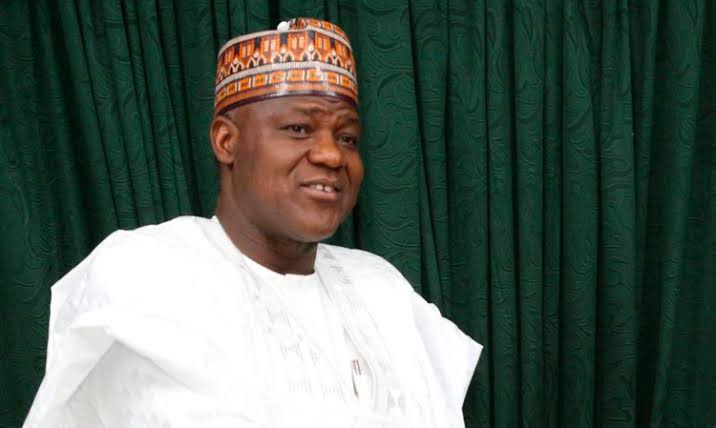Former speaker of the House of Representatives, Yakubu Dogara, has enjoined lawmakers of the 10th National Assembly and state assemblies to utilize emerging technologies not only to streamline processes, improve decision-making, and enhance team communication but in building enduring networks.
According to him, networks will enable one to create connections and leverage relationships with other legislative leaders from different countries and backgrounds for the purposes of sharing knowledge and collaborating on deepening democratic cultures and legislative processes.
Dogara made this appeal when he delivered a paper at a 1-Day Technical Session for Speakers of State Houses of Assembly organized by PERL-ECP in collaboration with the Conference of Speakers held at Transcorp Hilton, Abuja on Thursday, 13th July with the theme: Effective Leadership for Emerging Legislatures: Lessons, Challenges, Opportunities and Recommendation.
According to him, “We live in an age of adventure with working environments that are becoming more and more diverse. The opportunity is always there for you to venture into or volunteer for challenging tasks or projects that are outside your comfort zone to develop new skills and garner new experiences.
“Embracing diversity in your members can help you create an inclusive environment that takes into cognizance different perspectives and backgrounds.”
Yakubu Dogara stressed that there are opportunities for mentoring like never before, saying that “There is a pool of experienced past leaders of the legislature and notable former members some of whom were exceptional. Nothing stops you from consulting them to provide guidance, valuable insights, advice, and support.
“The question of Police reforms, local government reforms, restructuring/devolution of powers and many more still require urgent attention. You do not need to look too far like others before you did, all that is needed is for you to dust off most of the reports already in your libraries and use them as working tools. These tools are what you need for effective legislative responsibility.
“An effective leader must learn to inspire and motivate his members. To do this he/she must not only understand individual member’s needs but strive to align them with legislative goals, and provide recognition and support to keep the members motivated and engaged,” he said.
The former Speaker noted that “This is a challenge that requires a lot of patience to overcome. Also, an effective leader must learn how to navigate power dynamics. Failure to develop the needed skills to exert influence, build coalitions, and handle power effectively while remaining ethical and 9inclusive may prove fatal to the leader of the legislature. So many have been impeached for their inability to grapple with power dynamics and overcome.”
“Any legislature has conflict generating structures embedded in it. How do you proactively manage these conflicts in a constructive manner which focuses on not avoiding difficult conversations, finding common grounds and facilitating productive dialogue?”
“How do you handle lack of technical competence on the part of most members of the legislature that rears its ugly head through withdrawal, total absenteeism from legislative activities and lack of parliamentary decorum which are fast becoming distinctive features of the legislature at all levels?”
He however said that since no leader knows it all and can do it all by himself, an effective leader must learn to delegate. But to learn to trust and empower members by assigning meaningful tasks and providing the necessary support and resources in an environment where there are no functional tools and enough resources is not a meaningful job.
Dogara added that a knotty issue is how “to prove your competence in order to rein in the trust of your members through consistent action, transparency, and ethical behavior, that is to say without character you cannot provide effective leadership.
Asked how to, as a leader, encourage active disagreement as part of the decision-making process for properly weighing opportunity and risk, Dogara stated that “Ironically, by allowing dissent a leader enables cohesion. Creating conditions that encourage diversity in thought and strikes a reasonable balance between dissent and the kind of cohesion that is needed to deliver on goals is the hallmark of an effective leader.”
According to him, “Opposition, as the cornerstone of parliamentary democracy, must never be muffled in the legislature. It is said that the legislature consisting of a body of elected representatives is the first arm of government in a representative democracy.”
“The legislature is that organ of the government which is constitutionally empowered to formulate the will of the state and vest it with legal authority and force. If you like, it is the assembly of the elected representatives of the people and represents national public opinion and power of the people.”
He then explained that the constitutionally exclusive preserve of the legislature in a representative democracy: law-Making, representative function, deliberative function, approval of annual budgets, confirmation of nominations made by the executive, oversight functions, impeachment of the executive, ratification of treaties/agreements, and Constitutional amendments.
“Therefore, by constitutional design, our democracy is organised in such a way that it is made to be driven by consensus. Where consensus fails, it is always the prerogative of the legislature to go first, in the sense that when it comes to bills for instance, even where the President/Governor has vetoed it, if the legislature can muster two third of its members, they can override the President’s/Governor’s veto as the case may be,” he said.
READ ALSO FROM NIGERIAN TRIBUNE




